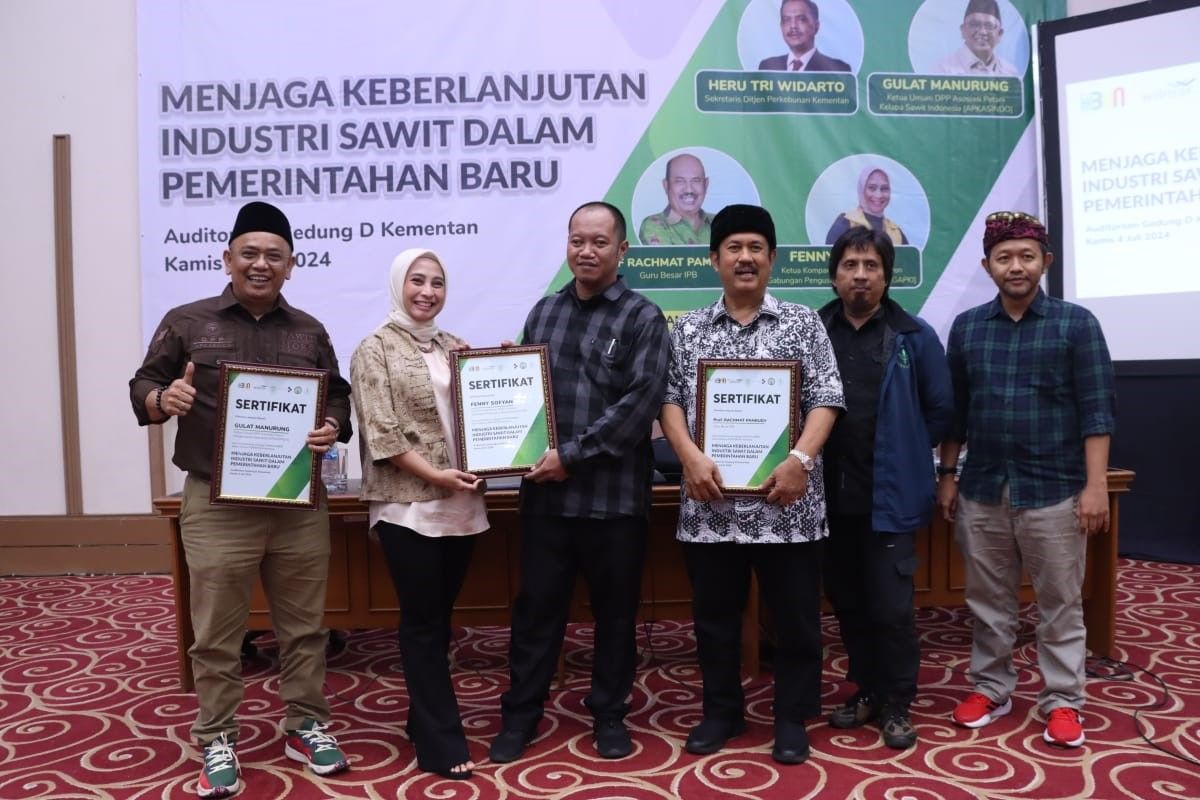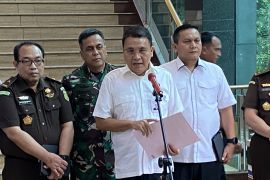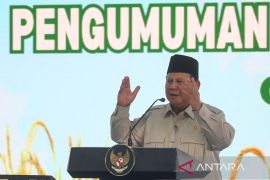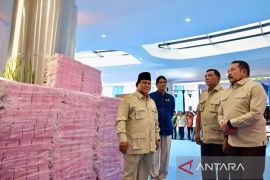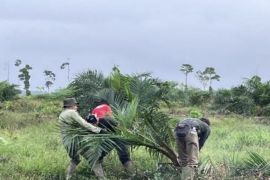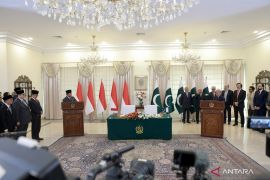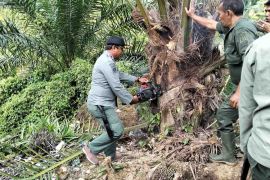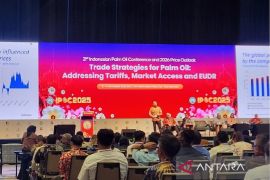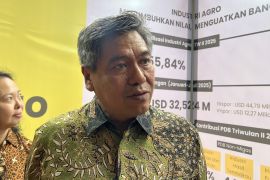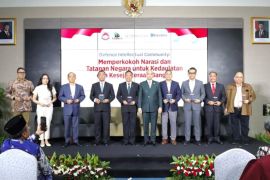According to Bogor Agricultural University (IPB) Professor, Rachmat Pambudy, it is necessary to have both a protective and promotive policy for palm oil.
"The government can choose a protection policy because palm oil is often unstable. There are many ways that can be done to protect palm oil in an active and passive way," he said in his statement here on Sunday.
Palm oil protection and promotion need to be actively carried out through financing support and managed by the Oil Palm Plantation Fund Management Agency (BPDPKS), he argued.
Regarding the proposal to establish the BPDPKS, Pambudy stressed that it must have a strong basis in terms of data and arguments.
He said that the BPDPKS establishment is a common interest of palm oil stakeholders.
"I see that the (BPDPKS) is a necessity and part of the strategy to produce superior products that are competitive," he said in a discussion titled "Maintaining the Sustainability of the Palm Oil Industry in the New Government", held in Jakarta on July 4.
He stated that the agency establishment must have a legal basis based on the existing laws and regulations.
Meanwhile, communication staff of the Indonesian Palm Oil Association (GAPKI), Fenny Sofyan, said Indonesian palm oil industry is facing the negative palm oil image campaign.
One of the ways to counteract the negative campaign, she said, is to intensify the Indonesia Sustainable Palm Oil (ISPO) policy.
She hoped that the Prabowo-Gibran administration will be able to make ISPO the only valid certification so that market can fully accept Indonesian palm oil products.
"The acceptance of palm oil by the community must happen, hence, ISPO is a value for the industry players. That is why in the next government, we hope that there will be advocacy regarding this matter," she said.
Related news: Indonesia, Malaysia see EUDR as detrimental to exports
Related news: RI, Malaysia, EU create task force on deforestation regulation
Translator: Subagyo, Kenzu
Editor: Rahmad Nasution
Copyright © ANTARA 2024
